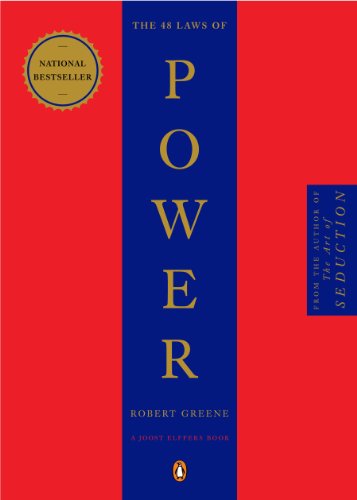

This article is an excerpt from the Shortform summary of "The 48 Laws of Power" by Robert Greene. Shortform has the world's best summaries of books you should be reading.
Like this article? Sign up for a free trial here .
We often believe that to surrender is to lose. But what if we could surrender to win? How would that change how we view power dynamics? How would affect how we act in the face of probable defeat?
Surrendering to win is an age-old technique to win in the long run, even if it means losing today. We’ll cover what it means to surrender to win, why you’d want to surrender to win, and examples of historical figures who’ve surrendered and won big.
Overview: Surrender to Win
Although it may not seem like it, surrender can be a tool of power. When you’re weaker, surrender rather than fighting for the sake of honor. This gives you time to build strength and undermine your victor, while you wait for his power to weaken. Surrender to win, and you’ll win in the end, even if you have to lose a few battles first.
The Principles of Surrendering to Win
It may seem counterintuitive, but surrendering to your opponents can be the best course because it puts you in a position of control. This is how you can surrender to win.
People typically overreact to opponents’ actions, which escalates their problems. Your first instinct will be to respond to aggression with greater aggression. You will not want to Surrender to win. You’ll want to win right now! But your enemy will step up his aggression in turn. If you’re the weaker party, you’ll be decimated.
A wiser and more effective tactic is to surrender, to turn the other cheek. That halts your opponent’s aggression and confuses her while giving you the upper hand. While your opponent is lulled into thinking she’s defeated you, you now have the space to build your strength, discover your enemy’s weaknesses, and plan revenge. You can surrender to win. You just have to be patient.
On the surface, you appear compliant, but inwardly you’re standing firm. It requires self-control to play dead long enough to make your opponent think she’s defeated you. If you get up too soon, you’ll ruin the charade and end up suffering.
Sometimes, when overpowered by an enemy, it’s tempting to run. But eventually, he’ll catch up with you and crush you. Instead, stay close enough to strike when you’re ready.
- In ancient China, a king, Goujian, lost a battle to the ruler of Wu. Rather than fleeing, he gave the victor his riches and went to work in Wu’s stables, where he could watch and learn how to defeat him in the future. Eventually, he was allowed to return home, and when the kingdom of Wu was undermined by drought and infighting, Goujian attacked and won easily.
Power fluctuates. The person on top today will eventually fall. Surrender often puts you in the best position to benefit when the crash inevitably comes. To surrender to win, you must take the long view.
Example: Surrender to Win
The German Writer Bertolt Brecht, a communist, fled to the U.S. to work in the film industry when Hitler rose to power. He wrote anticapitalist screenplays, which was fine until the 1950s, when the House Un-American Activities Committee began its Hollywood witch-hunts. Other writers were angry and confrontational when they appeared before the committee, and ended up suffering for it, unable to continue their work.
Brecht, however, was polite and deferential, but gave ambiguous answers. Although his English was quite good, he brought an interpreter who was able to confuse the committee about the meaning of his writings, which appeared to vary depending on whether you read them in German or English. After only an hour, the committee dismissed him, thanking him for his cooperation and proclaiming him an example to other witnesses. Brecht was thus free to continue his work. Brecht surrendered to win, although his deference probably looked like a loss in the short term.
By appearing to respect and surrender to the committee’s authority, Brecht made its members feel important while at the same time subtly mocking their ignorance of his work.
When You Shouldn’t Surrender to Win
Some might argue that there are situations or causes that call for martyrdom rather than surrender. Maybe your enemy won’t quit. Maybe you want to inspire future followers. But you wouldn’t be alive to enjoy the rewards. You’re better off waiting for the tide to turn in your favor, and you’ll be alive to take advantage of it. Generally, if you can’t win right away, rather than fight to the death, it’s better to surrender to win.
———End of Preview———

Like what you just read? Read the rest of the world's best summary of "The 48 Laws of Power" at Shortform . Learn the book's critical concepts in 20 minutes or less .
Here's what you'll find in our full The 48 Laws of Power summary :
- Why you should never outshine your boss
- How to appear like a friend but behave like a spy
- The 6 rules you absolutely must not violate, if you want to be successful






